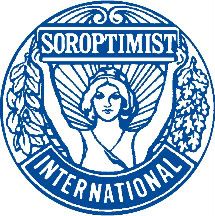http://www.youtube.com/watch?v=WcjFryjDTd8
www.soroptimisteurope.org
The United Nations have declared 2008 the "International Year of Sanitation". More than 20 million Europeans depend on unsafe sanitation such as pit latrines, soak aways and drains, which result in high morbidity, even mortality, especially among children.
The right to safe and affordable water and sanitation is one of the main missions of WECF, "Women in Europe for a Common Future". Water cannot be considered a commodity. It is a basic human right, recognized by 24 countries, recently also by Belgium, the United Kingdom and the Netherlands. That's why drinking water sources need to be protected from pollution.
In Romania, small children still die from blue baby syndrome, caused by high levels of nitrates and human faecal bacteria in well water. These pollutants infiltrate into the ground water from the pit latrines. Many inhabitants in Garla Mare and Prislop have difficulties feeding their families. In years of bad harvest they do not have enough to eat and sanitation is understandably not a priority for them, especially if the only available alternative is expensive.
In the village of Sulitsa in Bulgaria, there is no central sewage. The people in the village used septic pits from where the toilet water infiltrates into the soil. WECF and its Bulgarian member "Earth Forever" built safe dry urine separating toilet and waste water facilities for schools and the cultural club and 2 households in these villages. This new technology is low cost and allows toilets to be built indoors with safe treatment of the faecal and waste water.
"Women in Europe for a Common Future" mobilizes women to find affordable solutions to the environmental health problems in their communities, and encourages women to participate in decision-making. This film shows that modern low cost approaches and active citizens' participation can provide an immediate solution to the health and environmental problems related to sanitation in rural areas Eastern Europe. But much more is needed.
WECF believes that it should be the right for Each EU citizen to have access to safe and affordable sanitation. So far, for 20 million people in the European Union that right has not been fulfilled.
WECF calls on the Council of Ministers and the European Commission to make safe and affordable sanitation for all citizens of the European Union a key priority. Additional funding and effort are needed, and an action plan by which -- at the latest by 2015 -- all the 20 million people currently using unsafe latrines have been provided with safer solutions.





No comments:
Post a Comment